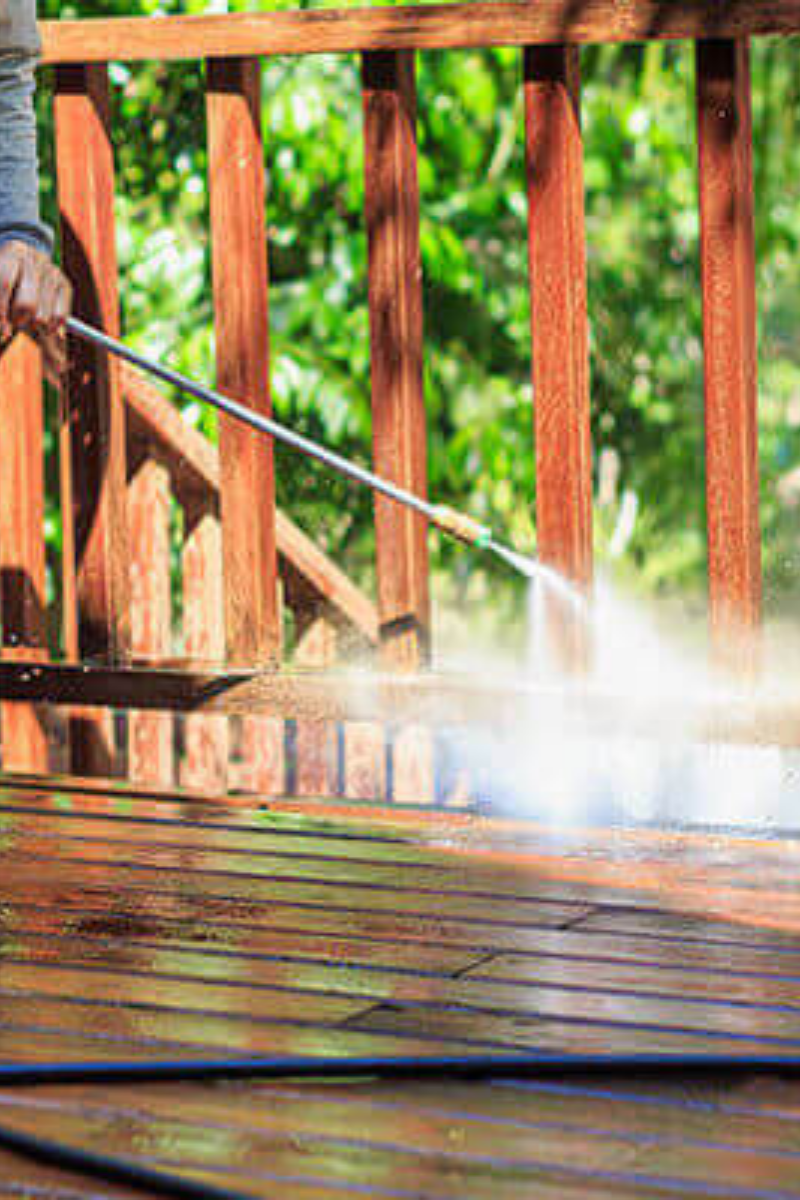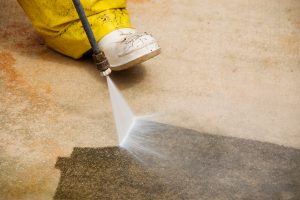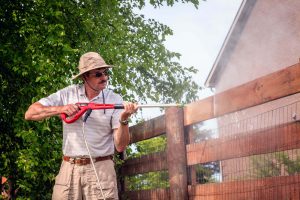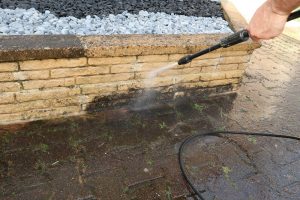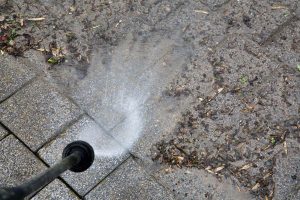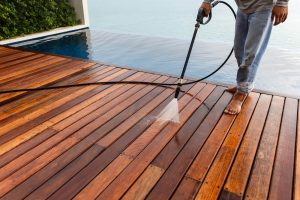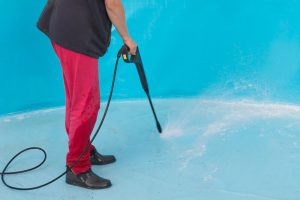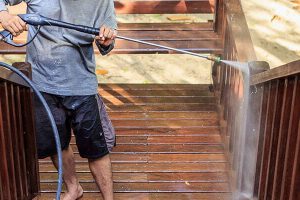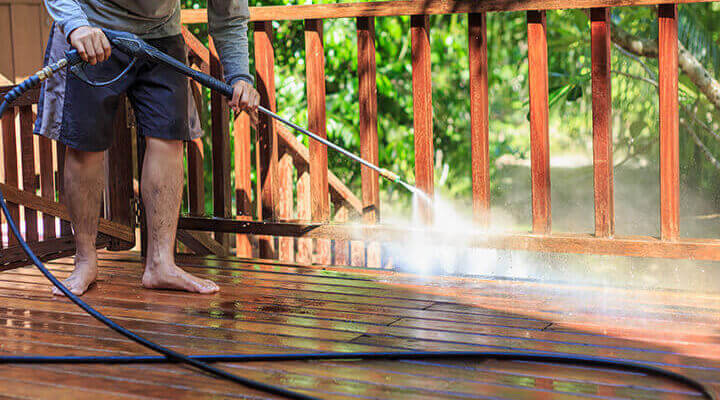 A power cleaner has a great ability to clean, remove grime, algae, and dirt in a quick and efficient way. As such, it can substantially enhance your ability to keep and maintain a clean environment around your property and equipment.
A power cleaner has a great ability to clean, remove grime, algae, and dirt in a quick and efficient way. As such, it can substantially enhance your ability to keep and maintain a clean environment around your property and equipment.
Besides being hygienic, keeping your property clean and well maintained will enhance its value and longevity. If you value time in your cleaning, this machine can be a good investment.
However, if you buy a wrong one, you stand to waste a lot of money and time. As a result, it is essential that you know the aspects that you need to review in the device in order to identify a washer that is right for your cleaning needs.
Here are some of the things to consider.
Table of Contents
1. Uses of the Machine
Once you get your machine, you will go through the “clean everything” phase as all new owners do. The deferred maintenance backlog is usually huge for a busy homeowner.
If you need a little inspiration while you wait for yours to arrive, here are just a few of the uses you will have for your new machine.
What other things will you use it for besides the main purpose? Make sure the machine’s specifications are suitable and appropriate for what you require and purchase the best model you can afford.
If your intention is to use it for cleaning your car, consider a lower-range unit that is suitable for cleaning cars rather than a high-powered washer that might end up damaging the paintwork of the car.
However, if you intend to use it to wash your patio or concrete driveways, then the higher pressure is suitable to remove all the tough dirt.
Some models also have different power settings which can be useful when cleaning delicate items.
2. Portable/Stationary Models
Whether you want a stationary or a portable cleaner, you will need to consider the intended purpose of the washer you have in mind. If you don’t want to move your machine around but prefer to keep it in a confined room, then the stationary washer could be great for you. This type, however, is a bit expensive to keep and maintain.
Alternatively, a portable one is convenient in terms of use in multiple areas. You can roll or pull them on their rubber tires to wherever you may wish to use it.
3. Gas or Electric
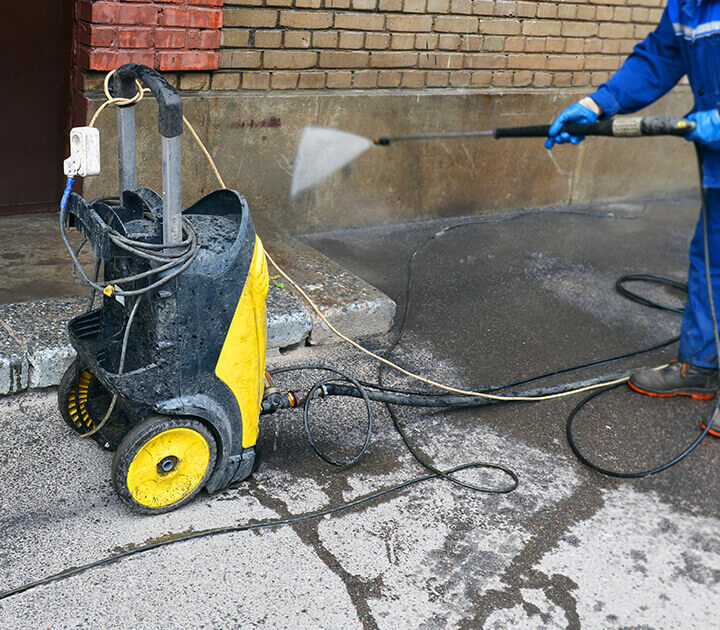 The electric and gas powered cleaners differ in the way they pressurize water, speed, and the strength at which water comes out.
The electric and gas powered cleaners differ in the way they pressurize water, speed, and the strength at which water comes out.
For instance, electric powered washers run quieter and start by a simple touch of a switch.
They are also lighter and are convenient for simple home and garden pressure washing applications like car cleaning, cleaning of garden tools and furniture, motorbikes’ cleaning, and bicycles’ cleaning. However, they must be plugged into a power source and cannot operate where there is no outlet.
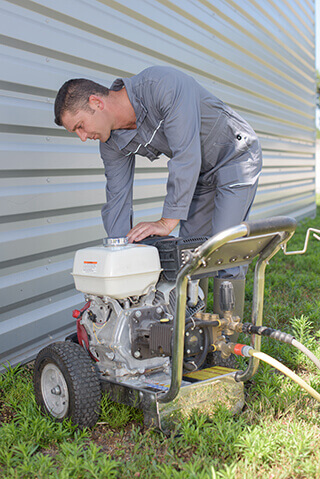 Gas pressure washers, on the other hand, are suitable for a professional and regular application. They are also convenient if you want to handle heavy-duty pressure washing jobs and might prove to be more effective than electric ones since they offer more power.
Gas pressure washers, on the other hand, are suitable for a professional and regular application. They are also convenient if you want to handle heavy-duty pressure washing jobs and might prove to be more effective than electric ones since they offer more power.
More importantly, they don’t need you to plug into a power source. If you intend to use your cleaner for lighter home washing needs, choose an electric model.
You will be better off with gas-powered, however, if you intend to use it on heavy duty applications such as cleaning patios, decking, driveways, lawnmowers, walls, and fences.
4. Hot or Cold Water
Most stores have more cold water models than hot. This is because cold-water cleaners are not as complicated as the hot water versions are, are easily portable, and are more convenient.
Hot water units clean much better mainly because the higher water temperature helps the molecules expand and assist in moving dirt and grime away. They also use less soap and are faster in their cleaning. The hot water washers’ sanitizing capabilities are also better than those of cold-water machines are.
As such, they are suitable for industrial or farm use. If you want a machine for home cleaning, choose a cold water unit unless you have something crazy like a meat locker that needs to be clean and sanitized all the time.
5. Power
Pressure cleaners state their power in two ways; pounds per square inch (PSI) and gallons per minute (GPM). These two values make up a model’s CU (cleaning units).
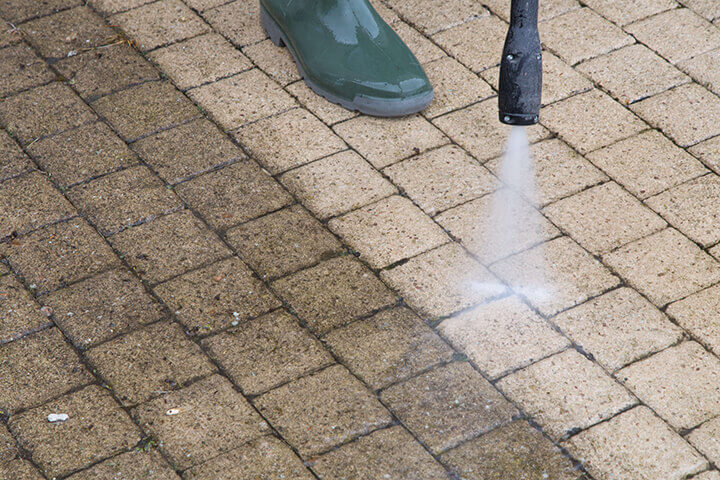
To get the CU of the machine you intend to buy, simply multiply the PSI and the GPM of the machine. The greater the CU of the pressure washer the better the ability of the machine to clean effectively.
A high-powered unit will enable you to clean your surface quickly and effectively without the need to scrub it.
6. Noise Levels
On average, a gas-powered model produces about 85 dBA of noise during operation while the electric one produces about 78dBA on average. Consider buying a machine with lower noise levels if you don’t want to disturb your neighbors while working.
7. Warranty
In the market, you will find products that offer different types of warranties. Some will claim to have a longer warranty than the others do while others will claim to have the most comprehensive warranty.
Carefully, read the fine print and get to know what the warranty covers. Does it cover the frame, engine, or the pump? You may be surprised what some of the manufacturers offer as their warranty, so choose one with a warranty covering the engine and pump.
Helpful Tips to Maintaining your Pressure Washer
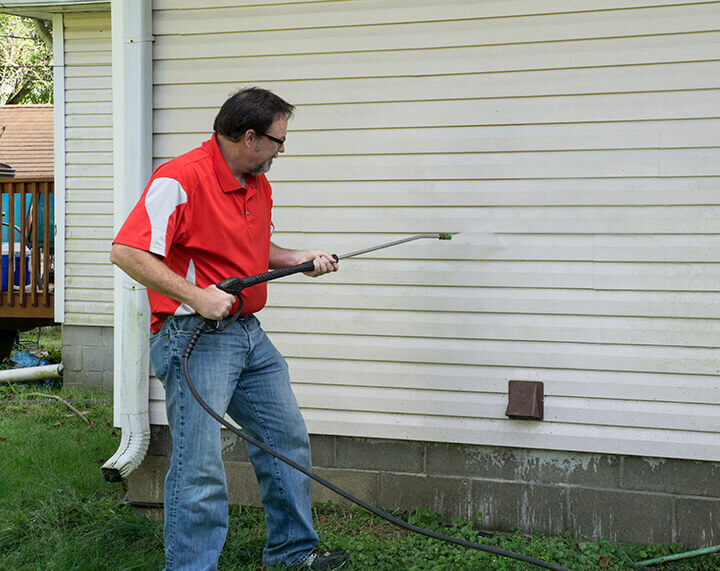 Regular maintenance of your pressure washer will enhance your safety and improve the durability and reliability of your washer machine. By keenly following the tips below, you will get to enjoy more benefits from your pressure washing unit.
Regular maintenance of your pressure washer will enhance your safety and improve the durability and reliability of your washer machine. By keenly following the tips below, you will get to enjoy more benefits from your pressure washing unit.
Before Using
These are the tips to maintain your pressure washer before using in order to enhance performance and proper working order.
- Ensure the o-rings of your pressure hose are free of wear and tear. If the o-rings are damaged, they could cause serious issues such as leakages and damage during operation. Consider replacing them if they are damaged before use.
- Ensure to confirm that the nozzle is securely locked in place.
- Check whether you have plugged the nozzle with debris or any dirt.
- If you are using a gas-powered machine, make sure you have fresh oil and gas before you start your cleaning. Do not operate your pressure washer with oil that has sat in the tank from the previous season. It is important to add an additive and finally top it with new gasoline.
- Check whether your spark plug is corroded. A corroded spark plug can cause difficulty in starting and compromise the machine’s efficiency during operation. Ensure to replace corroded spark plugs before using.
After Use
Always switch off the power and unplug the unit as a first priority to prevent damage to the machine.
Clean the detergent intake; clean it thoroughly with clean water leaving it clear.
Wash all the dirt from the interior of the machine to prevent any irregular behavior while in use.
Drain excess water out prior to storing. Any left water can grow mold or bacteria.
Keep your pressure washer in a safe and well ventilated out of the rain, snow, or direct sunlight.
Important Note
Make it a priority to follow the manufacturer instructions regarding the usage of your machine and maintain it properly. In addition to improving productivity, this will also enhance the safety of the machine, yourself, and others.
